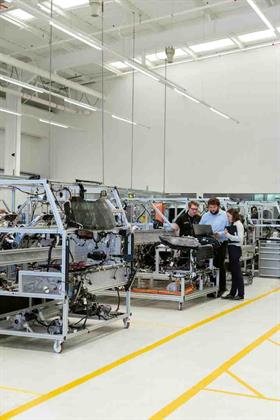
What Is Odoo Custom ERP for the Furniture Industry?
An enterprise resource planning solution created especially for furniture makers, retailers, and distributors is Odoo Custom ERP for the furniture sector. It tackles the particular difficulties of the industry, like handling fluctuating raw materials, maintaining intricate product combinations, and coordinating design-to-delivery workflows, in contrast to generic ERP systems. Better visibility and control throughout the company are ensured by centralising activities, which streamlines procedures like production planning, sales, inventory management, and after-sales service.
Odoo's adaptability enables furniture firms to customize the system to meet their own requirements. Businesses may automate tedious activities, connect specialised modules, and create unique workflows that mirror their operational realities with the aid of an odoo customization service. By cutting lead times and minimising errors throughout the production and delivery cycle, this not only increases efficiency but also improves the customer experience.
Core Functional Modules that Power Furniture ERP Efficiency
Product Lifecycle Management (PLM): Manages the entire lifecycle of furniture products, from initial concept and design to retirement. It ensures all design changes, documentation, and version controls are tracked and accessible to relevant teams.
Inventory Management: Optimizes stock levels by tracking raw materials, finished goods, and components in real-time. It supports barcode scanning and automated replenishment, reducing stockouts and excess inventory.
Manufacturing Management: Streamlines production planning, scheduling, and shop floor operations. This module helps allocate resources efficiently, monitor work orders, and ensure timely completion of manufacturing tasks.
Sales and CRM: Handles customer inquiries, quotations, orders, and relationship management. It provides a unified view of customer interactions, helping sales teams close deals faster and deliver personalized service.
Procurement and Supplier Management: Automates purchase orders, supplier negotiations, and vendor performance tracking. It ensures timely procurement of quality materials at optimal costs.
Quality Control: Implements quality checks at every stage, from raw material inspection to final product delivery. It helps maintain high standards, reduce defects, and ensure customer satisfaction.
Seamless Integration of Design, Production, and Delivery Stages
Product Design: Odoo connects design teams with production by integrating CAD files and design specifications directly into the ERP, ensuring accuracy and consistency.
Material Planning: Automates the calculation of required raw materials based on design specifications and sales forecasts, ensuring timely procurement.
Procurement: Streamlines supplier selection, purchase orders, and inventory receipt processes, reducing delays and ensuring material availability.
Production Scheduling: Allocates resources, schedules work orders, and tracks progress in real-time, optimizing manufacturing efficiency.
Assembly: Coordinates the assembly process, ensuring the right components are available and quality standards are met at each step.
Quality Assurance: Embeds quality checks throughout the workflow, from material receipt to finished product inspection, minimizing defects.
Logistics and Delivery: Integrates with logistics providers to automate shipping, track deliveries, and provide customers with real-time updates.
Automation Benefits Across Furniture Manufacturing Operations
Reduced Manual Errors: Automated data entry and process flows minimize human errors, leading to more accurate orders and inventory records.
Faster Order Processing: Streamlined workflows accelerate order confirmation, production, and delivery, enhancing customer satisfaction.
Enhanced Inventory Control: Real-time inventory tracking prevents stockouts and overstocking, optimizing working capital.
Improved Production Planning: Automated scheduling and resource allocation ensure efficient use of machinery and labor, reducing bottlenecks.
Better Quality Management: Automated quality checks at each stage ensure consistent product standards and fewer returns.
Integrated Reporting: Centralized data enables instant generation of financial, operational, and sales reports for better decision-making.
Scalable Operations: Automation supports business growth by handling increased transaction volumes without additional manual effort.
Why Scalable ERP Architecture Matters for Growing Furniture Brands
Managing product lines, client expectations, and supply chains becomes more difficult for furniture companies as they grow. Higher transaction volumes, more users, and more intricate workflows may all be handled by the system without experiencing performance problems thanks to a scalable ERP architecture. Supporting multi-location operations, new product launches, and changing business models while preserving data integrity and operational efficiency all depend on this flexibility.
Odoo is the perfect option for ambitious brands because of its modular nature, which enables businesses to add new features as their needs develop. Businesses can automate special procedures, integrate third-party tools, and modify modules by utilising an odoo customization service, guaranteeing that the ERP develops with the business. This forward-thinking strategy lowers the possibility of expensive system replacements and gives furniture firms the ability to maintain their competitiveness in a changing market.



















